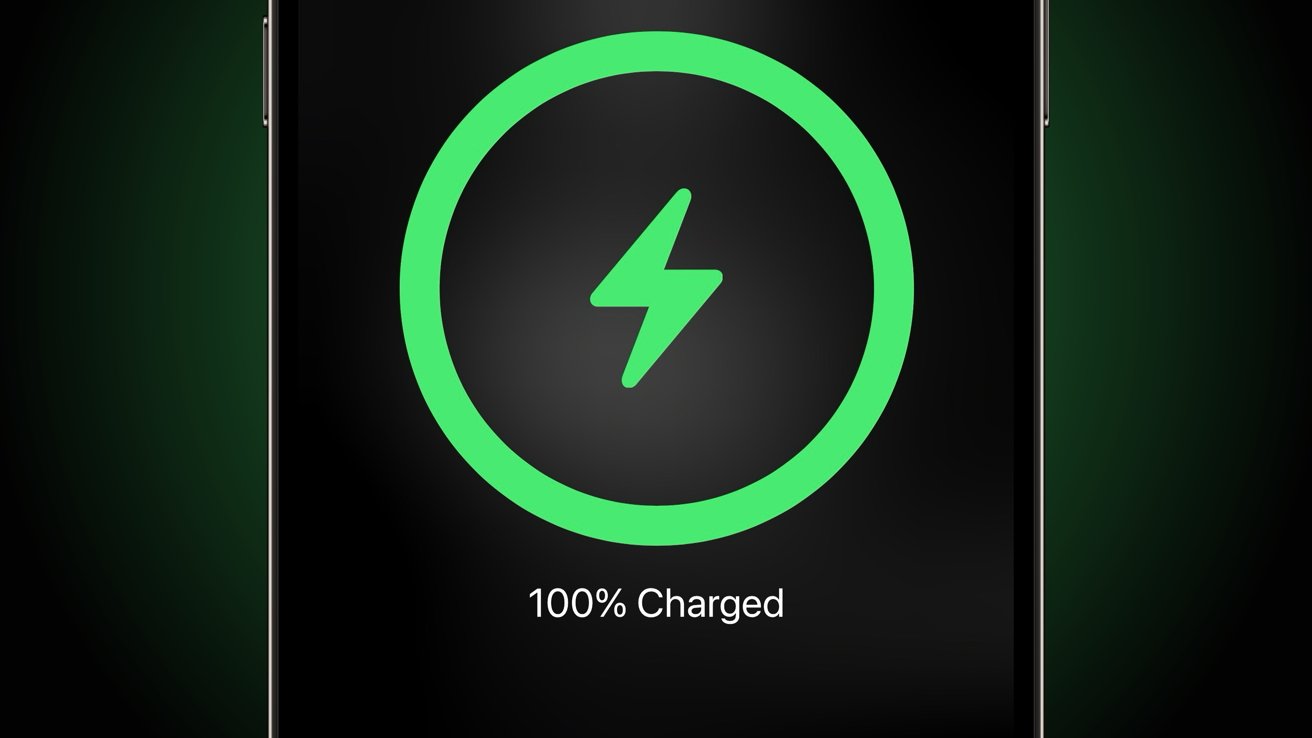iPhone 15 users looking to prolong their battery health a little further have a new option — an 80% charging hard limit.
People concerned over iPhone battery health attempt to control every aspect of their device experience to eke out moments of additional usage. While AppleInsider recommends users just let the battery power management system handle things, Apple is adding a new toggle.
New information obtained by MacRumors' Joe Rossignol during a Verge Q&A session confirm the entire iPhone 15 lineup has a new battery health setting. Users can choose to stop the iPhone from charging past 80% rather than reaching 100%.
This isn't the usual Optimized Battery Charging setting that stops the iPhone from charging once it hits 80%, then resumes charging to 100% to finish just before the user wakes up. Instead, the iPhone will never charge past 80%.
Charging a battery is relatively efficient and uniform from 0% to 80%, but that last 20% generally takes more energy and produces more heat. This leads some users to consciously try to float their battery between 40% and 80% at all times to prolong battery health.
Now, users no longer need to monitor charging and can have it stop at 80% automatically. However, AppleInsider continues to recommend users stick with Optimized Battery Charging and avoid this new setting.
There is very little to gain from stopping an iPhone from charging past 80%. Instead, the user will suffer from not having access to the full potential of the battery capacity while only salvaging a few more weeks of battery health.
Instead, users should continue to use their devices with fully automatic settings and charge whenever necessary. There's no stopping physics, and all batteries will need to be replaced eventually.
 Wesley Hilliard
Wesley Hilliard








 Marko Zivkovic
Marko Zivkovic
 Christine McKee
Christine McKee
 Andrew Orr
Andrew Orr
 Andrew O'Hara
Andrew O'Hara
 William Gallagher
William Gallagher

 Mike Wuerthele
Mike Wuerthele
 Bon Adamson
Bon Adamson


-m.jpg)



23 Comments
Actually... Most wear to lithium batteries is in the topping charge (80%+). Preventing the battery exceeding 80% does genuinely increase battery lifetime quite significantly. If a user doesn't discharge their battery to <20% by the end of the day, there is no point in charging it to 100% and causing more wear. Better to use the lower 0-80% than the upper 20-100%. This is why Apple limits the charge to 80% as much as possible at night, which is a relatively small proportion of time, but the battery improvement is enough that they deem it worth it.
I hope this comes to older iPhones too.
I wonder why they don’t give you the ability to do this with pre-15 phones. Seems like a simple software thing that wouldn’t be hardware dependent.
So, now it’s bad to charge your phone to 100% ? Lol, so much different information out there. It’s hard to know what to believe.